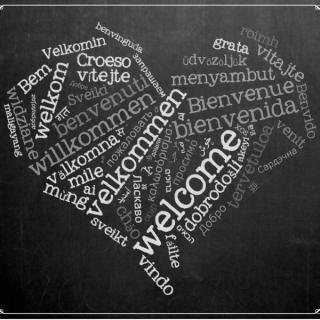Focus on: Why, when and how should children learn a foreign language

"The borders of my language are the borders of my world." – Ludwig Wittgenstein, Tractatus Logico-Philosophicus (5.6)
The stories your parents told you. The games you used to play in the playground. Conversations you have with people around you. All of these form an integral part of your identity, and what they have in common is language. Personal identity does not exist in a vacuum, but is shaped by and in turn affects the collective identity of the surrounding society. Thus, language forms an integral and significant part of our cultural identity. The power of language to shape, unite or divide people has been known and used in various ways to influence and direct people for centuries.
A common language gives a sense of belonging. It creates a space of mutual understanding between you and a stranger, making that person closer to you than others you may meet. It gives you the security of shared references and often a shared perception of the world. This, of course, is also a fundamental aspect of identity.
Identity is often assumed to be possible only within the context of a single language – the so-called mother tongue. However, in today's global village, it is important to look at the effects of language on individuals and at how exposure to different languages early in life can help shape our identities and perceptions.
Certain experiments with speakers of gendered languages have shown that native speakers of such languages assign physical genders to anamorphic objects, even though they know intellectually that objects are gender neutral. As certain habits of thought in specific languages shape our conception of the world from a very early age, it is likely that early exposure to foreign languages will also play a role in shaping a child's view of the world. This raises an important question for our education systems: when should language learning be introduced?
The 2017 Eurydice report on Key Data Languages shows that many European countries have introduced language education early in their school systems. European children across the board are exposed to different languages much earlier than in the past.
What are the implications of this? Could exposing children to other languages while their brains are still young and linguistically more flexible, help them accept not only other types of grammatical structure and syntax, but also other ways of perceiving and analysing the world?
Of course, it would be naïve to think that simply adding hours in the classroom will be sufficient to create this kind of impact and attachment to a language. It is also important to consider how languages are taught to young children (as well as to their elders). The overarching importance of languages in communication should be central to language instruction. Shared references and an understanding of the cultural concepts used by others should feature organically and prominently. Quality and duration of instruction is also a significant factor in effective language learning, and early language education in any capacity is not a simple catch-all solution. So why not combine both, and strive to give European children quality, in-depth linguistic education that starts early enough to tap into their natural linguistic advantages?
This certainly requires action outside the classroom as well. Carrying bilingualism or multilingualism into mainstream culture through TV programmes, online media or multilingual publications could be the right approach for the diverse linguistic landscape of the continent, making the 'foreign' local and normal. This, combined with classroom learning, could increase a child's personal language awareness, making it easier to learn other languages later on. Moreover, exposure to many different foreign languages can help achieve the objective of creating wider cultural awareness and increased respect for other perspectives and ways of life.
But is this vision of increasingly plurilingual youth open to the charge of being idealistic, and ignoring real-world practicalities? Actual language education competes in schools alongside many different subjects, with countries setting a variety of educational objectives and priorities. Meanwhile developing different languages in mainstream culture cannot be achieved without major long-term investment and planning. And beyond that, some authors, such as Harari in his best-selling books Sapiens and Homo Deus, suggest that our global societies are converging towards a single, global empire where linguistic variety will not be needed, making foreign language education redundant.
Whatever we may think of Harari's ideas, for the foreseeable future, foreign language learning certainly runs the risk of remaining 'foreign'. However, the trend in Europe of exposing children to foreign languages earlier is a positive one, and giving children the tools and opportunity to learn another language seems like a good start. Even if the concept of building a society with multilingual, multi-perceptional citizens is idealistic, it's not a bad objective for our education systems.
Authors: Kardelen Kala, David Crosier




